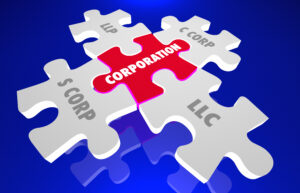More Proof the Wealthy Are Paying More Taxes
Depending on whom you ask, the wealthiest Americans either don’t pay enough in taxes and should be forced to pay more, or they pay way too much already and should be given a break. As with most cases, there are three sides to every story: yours, mine, and the truth.
According to the Tax Foundation, there is a lot of evidence that the wealthy are indeed already paying a lot more in taxes. According to the Tax Foundation, 2013 was a big year for tax hikes aimed at the wealthy. Not only was a new 39.6 percent tax bracket created but also the top rate on capital gains was raised to 20 percent. It didn’t stop there, either. The Affordable Care Act’s new 3.8 percent Net Investment Income Tax also went into affect.
So just how big of an impact have all these changes had on high-income earners in the country. For starters, those with yearly incomes of more than $500,000 saw their effective income tax rates soar from one year to the next. Those making between $1 and $2 million jumped from 24.2 percent to 28.6 percent from 2013 to 2014.
Meanwhile, for those who made more than $10 million experienced a jump from 19.8 percent to 26.1 percent. That equals a tax hike of more than 1.5 million. The numbers don’t lie and these numbers show that high-income earners have definitely experienced an increase in taxes recently. If you want to keep your taxes down, then contact GROCO to find out how. Click here or call us at 1-877-CPA-2006.
Tax S-corporation
Saving Taxes with an S Corporation An S corporation election allows the shareholders to preserve the benefit of limited liability for the corporate form while at the same time being treated as partners for federal income tax purposes. Ever wondered why so many small businesses operate as an S corporation? Simple. An S corporation saves…
Sec1045 Partnerships
Sec1045 Partnerships This document contains final regulations relating to the application of section 1045 of the Internal Revenue Code (Code) to partnerships and their partners. These regulations provide rules regarding the deferral of gain on a partnership’s sale of qualified small business stock (QSB stock) and a partner’s sale of QSB stock distributed by a…
Sec179 Businessequipment
Updated: 11/12/10 Most new business equipment can be either depreciated over its useful life or expensed immediately under Internal Revenue Code Section 179. The maximum deduction is based on the following schedule for the date in which the tax year begins. Each 1040, whether Single or Joint, is limited to one maximum. 179 expenses passed…
Sec1244 Small Business Stock Sales
Sec1244 Small Business Stock Sales Section 1244 of the Internal Revenue Code, the small business stock provision, was enacted to allow shareholders of domestic small business corporations to deduct as ordinary losses, losses sustained when they dispose of their small business stock. In order to receive this beneficial treatment, the Code prescribes specific requirements for:…



